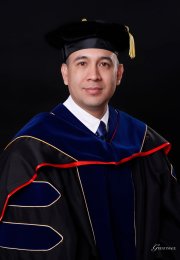- Resource Types
- Resource Languages
- Institutional Repository
 Visit the home page
Visit the home page
About Site Language
WHDL is viewable in multiple languages. Use the pull-down menu to select a language to view the site.
I changed my language, but I’m still seeing resources in the other languages?
If a resource or text has not been translated into your selected language, it will appear in the initially added language. We are always looking for help translating these resources. If you can help, contact us!
WHDL - 00013444


click to copy
Fernández, E (2021). Rafael Palma and transformational learning in the Philippines: paradigm shift from the Spanish to the Americans .
Fernández, ErnestoRafael Palma and transformational learning in the Philippines: paradigm shift from the Spanish to the Americans . , 2021
Fernández, ErnestoRafael Palma and transformational learning in the Philippines: paradigm shift from the Spanish to the Americans . , 2021
Fernández, ErnestoRafael Palma and transformational learning in the Philippines: paradigm shift from the Spanish to the Americans . , 2021
The following historical research focuses on changes in education from the Spanish to the American colonial systems, a paradigm shift. The study is based on Rafael Palma’s writings between 1899 to 1933, extending to 1945 considering his posthumous publications. Palma, though relatively unknown today, was a significant Philippine educator. The writer took into careful consideration Palma’s Spanish language sources, especially those available at the University of the Philippines Archives. The research is built upon primary source material, such as books, articles, speeches, essays, presidential reports and other documents. For over three-hundred years, Filipinos were under the colonial power of the Spaniards. Education in the Philippines was under the control of the Roman Catholic Church. Though the Spanish brought primary education to the Philippines, higher education was for the elite, and it was oppressive. Although Spanish education demonstrated improvements over the years, education did not reach the whole country and it never changed in its original intent, to educate people to remain loyal to the Church. After more than three-hundred years of Spanish rule, a new colonial power took over the Philippines. The Americans arrived in the Philippines in 1898. The Americans brought a less oppressive educational paradigm. Everyone deserved education, and education for the mases would prepare Filipinos for independence. Bridging these two periods a name that was highly respected, but now almost forgotten is Rafael Palma (1874 – 1939). By living in both periods, Palma himself experienced the changes, and saw the improvements under the Americans, but also criticized freely whatever he believed was not right. He was an agent of change. The philosophies that Rafael Palma developed were closely related to aspects of transformational learning, and, in particular, critical pedagogy. Critical pedagogy is a philosophy that was developed in the late nineteen-seventies by Brazilian educator Paulo Freire. His philosophies aimed toward the transformation of oppressive educational systems through developing a capacity for critical thinking, which included freedom from the pre-conceived notions of others. What would later be called transformational learning and critical pedagogy were already in the mind of Palma. The philosophies that Palma developed were revolutionary in his time and still remain useful today. Palma advocated academic freedom and education for both service and national development. As well, he related education to hospitality, morality, and religion. All of these were discussed by later educators and philosophers of education. Palma compared education under the Church to education under the state. Each provided what the other did not. For instance, under the Spaniards education enforced strict morality, whereas the Americans separated morality from education. Palma also compared methods of instruction based on his own experiences. He described the differences between oppressive and liberated educational systems. The Spanish wanted people to remain servants, or, in other words, oppressed. Though the Americans ignored morality, they provided freedom in education.
11 Resources
This collection contains the dissertations completed in partial fulfillment of the Degree PhD in Holistic Child Development, and PhD in Transformational Learning at Asia-Pacific Nazarene Theological Seminary in partnership with Asia Graduate School of Theology.
5 Resources
The collection is concentrated on resources on learning, teaching, and leading approaches that result in transformational learning in diverse person, institutions and cultures.
2011
1952
2008
2024